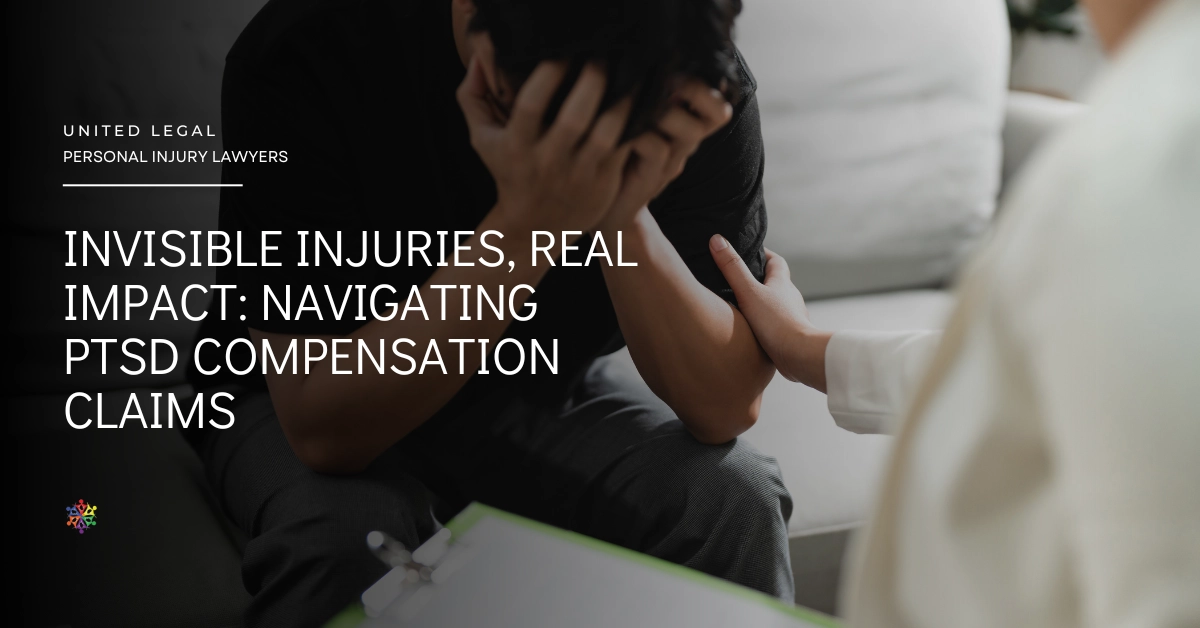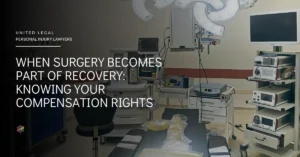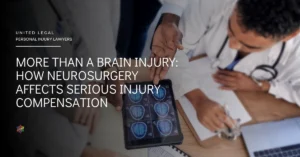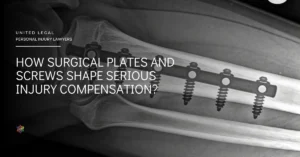Experiencing a traumatic accident can leave emotional wounds that are just as life-altering as physical injuries. Moreover, post-traumatic stress disorder (PTSD) can appear weeks or even months after an incident, affecting your sleep, confidence, ability to work, and daily routine. When this psychological trauma occurs because of someone else’s negligence, you may be entitled to make a PTSD injury claim under ACT law.
When you understand your rights early, you’re better equipped to protect yourself, secure the compensation you deserve, and access the treatment that helps you heal.
What Is a PTSD Injury Claim?
A PTSD injury claim allows individuals to seek compensation for psychological harm that develops after a traumatic accident. Unlike visible injuries, PTSD often affects your mind, emotions, and behaviour. However, the ACT legally recognises psychological injuries as compensable when they result from someone else’s negligent actions.
Under the Civil Law (Wrongs) Act 2002 (ACT), you have the right to recover damages if another party’s conduct caused your mental harm. You can read more about this legislation on the ACT Legislation Register here.
Additionally, compensation acknowledges the emotional toll PTSD takes and supports your path toward long-term recovery.
What Compensation Can Cover
A PTSD injury claim may provide compensation for:
- Psychological treatment, counselling, or psychiatric support
- Loss of income or reduced working capacity
- Medication and ongoing therapy
- Lifestyle adjustments and rehabilitation
- Pain, suffering, and emotional distress
Because PTSD affects each person differently, compensation reflects the severity of your symptoms and their impact on your everyday life.
Common Causes of PTSD After an Accident
PTSD can arise from many traumatic events, including:
- Motor vehicle accidents
- Workplace incidents or dangerous environments
- Falls or violent physical trauma
- Medical negligence or distressing surgical experiences
- Public place accidents involving fear, shock, or perceived danger
Even so, you may suffer no major physical injury and still develop PTSD. Therefore, early medical and legal guidance is essential.
How to Make a PTSD Injury Claim
Step 1: Seek Medical or Psychological Support
Visit a GP, psychologist, or psychiatrist as soon as symptoms appear. Their diagnostic reports will support your claim and guide your treatment plan, ensuring you receive the right care.
Step 2: Gather Evidence
Collect key documentation such as medical notes, treatment records, accident photographs, and witness statements. Together, these details build a clearer picture of how the traumatic event affected you.
Step 3: Notify the Responsible Party or Their Insurer
Once your lawyer reviews your evidence, they will notify the negligent party or insurer. Acting promptly ensures your PTSD injury claim remains within the ACT limitation periods.
Step 4: Work With a Personal Injury Lawyer
Psychological injury claims require careful handling. Consequently, an experienced lawyer can guide you through the process, negotiate with insurers, and help present evidence of your emotional and functional losses.
To understand how settlements differ from court outcomes, read more: Personal Injury Settlements vs Going to Court – What’s the Best Option?
How Compensation Is Calculated
Your compensation may depend on several important factors:
- The severity of your PTSD symptoms
- How the condition affects your work, relationships, and daily life
- The cost of counselling, medication, and long-term treatment
- Prognosis from mental health professionals
- The presence of additional physical injuries
For further insight into how payouts are assessed, see: List of Compensation Payouts and How They Are Calculated
Common Challenges in PTSD Injury Claims
Because PTSD is a psychological injury, claimants may face challenges such as:
- Establishing a clear link between the event and symptoms
- Insurers questioning diagnosis or severity
- Delays in obtaining specialist psychological assessments
- Proving emotional trauma without visible physical evidence
Fortunately, a skilled lawyer understands these hurdles and ensures your experiences are properly recognised and supported.
Final Thoughts: Healing Takes Time, but Help Is Available
PTSD may be invisible, but its impact is real. With time and the right guidance, you can protect your mental health, secure fair compensation, and rebuild control over your life. A PTSD injury claim acknowledges what you’ve been through and helps you access the resources you need to move forward with confidence.
Need Legal Help With a PTSD Injury Claim?
At United Legal, our compassionate personal injury lawyers help clients pursue fair compensation for psychological injuries caused by negligence — whether from road accidents, workplace incidents, or traumatic public place events.
Furthermore, we understand the sensitivity of PTSD claims and take the time to listen, support, and protect your rights throughout the process. From evidence gathering to negotiating with insurers, we handle everything so you can focus on recovery.
Call (02) 6295 2283 or email admin@unitedlegal.com.au for your free consultation today.
It only takes a few minutes to get started, and it could make all the difference in your healing and peace of mind.






